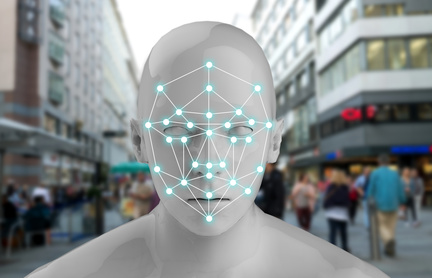Apple’s newly-announced smartphone, the iPhone X, has caused quite a stir. Not only for it’s projected $999.00 price tag (yes, you read that right), but for a new controversial feature called FaceID. This facial recognition system allows the user to not only unlock the device, but to authorize payments, using one’s face. Customers just look into the camera, where the phone compares their face with that of a pre-scanned image.
This is the next step in biometric identification: retina, voice and fingerprint recognition have all been around for a time. While this has been causing quite an uproar here in the States, it’s somewhat ironic that China has used facial recognition systems in bank ATMs since at least 2015. China is even testing this technology in KFC restaurants and for boarding flights.
- An Apple executive just revealed tasty new details about Face ID we didn’t know [Mashable] “‘What will prevent a thief from taking my phone, pointing it at my face, and running,’asked Krimbel in a Sept. 14 email. Federighi, it appears, was ready for this very question. ‘There are two mitigations: if you don’t stare at the phone, it won’t unlock,” he replied. “Also, if you grip the buttons on both sides of the phone when you hand it over, it will temporarily disable FaceID.'”
- Apple’s iPhone X facial recognition feature raises privacy concerns [CBS This Morning] “Now, Congress is asking where that information could go. In a letter to CEO Tim Cook, Sen. Al Franken, D-Minnesota, outlined a number of concerns, including Apple potentially selling the data to third parties or giving it up to law enforcement.”
- People are now selling masks as iPhone X security [Mashable] “When we heard that the iPhone X would open with Face ID, we predicted that people might get a little bit nervous. As it turns out, ‘a little’ was a massive understatement. “
- How Face ID Works On iPhone X [Forbes] “Face ID uses a combination of light projectors and sensors to take several images of your facial features. Collectively called the ‘TrueDepth camera system’, Apple says these technologies work together to build a ‘detailed depth map of your face to recognize you in an instant.'”
From the Ohio Web Library:
- Facial Recognition Technology: An Overview (Crelin, J. (2017). Facial Recognition Technology: An Overview. Points Of View: Facial Recognition Technology, 1.)
- Counterpoint: Facial Recognition Technology Should Be Regulated to Address Privacy Concerns (Points of View: Facial Recognition Technology, 1.)
- Facial recognition tech: creepy or cool? (Craig, T. (2017, September 14). Facial recognition tech: creepy or cool?. Record, The (Kitchener/Cambridge/Waterloo, ON).)


